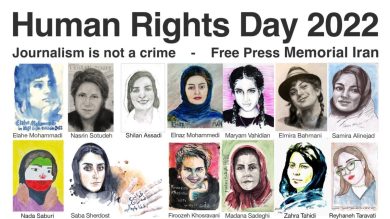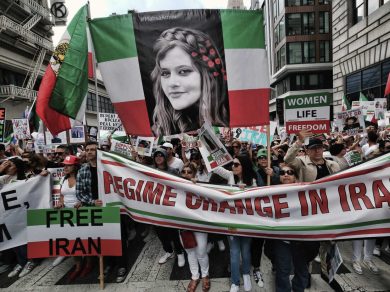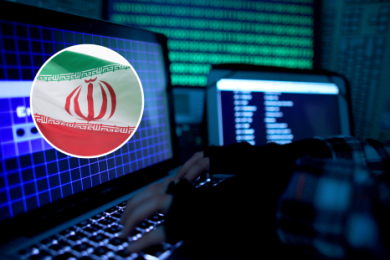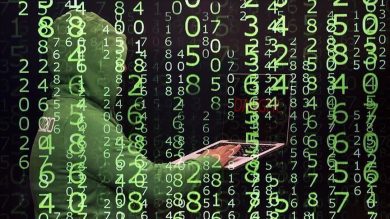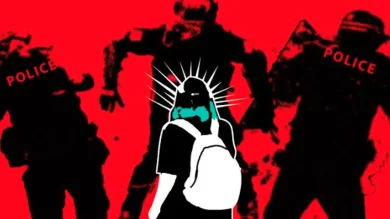For decades, governments have tried to curb the power of the Islamic Revolutionary Guard Corps (IRGC) through economic and diplomatic pressure. Sanctions have targeted IRGC commanders, front companies, and sectors under its control. More recently, calls have grown to formally designate the IRGC as a terrorist organization—a move with deeper legal and symbolic consequences.
But which is more effective: sanctions or terrorist designation? Are they mutually exclusive, or does real impact come when they are applied together?
This article explores how sanctions and terrorist designation differ, how each impacts the IRGC, and why coordinated use of both is essential to weaken one of the world’s most dangerous state-backed terror organizations.
1. Understanding the IRGC’s Structure and Influence
Before assessing tools for pressure, we must understand what makes the IRGC so powerful.
Key Domains of Power:
• Military Force: Includes the Quds Force (external operations), Basij (domestic repression), and elite missile, drone, and cyber units.
• Economic Empire: Owns or controls a vast network of construction firms, oil and gas companies, banks, telecom firms, and black-market smuggling routes.
• Intelligence and Surveillance: Maintains its own intelligence service, rivaling the Ministry of Intelligence, with control over prisons and political policing.
• Ideological Influence: Enforces the regime’s religious doctrine, censors dissent, and promotes radical Shiite militancy abroad.
The IRGC is both an institution and a system. Weakening it requires more than symbolic gestures—it demands cutting off the sources of its power.
2. What Are Sanctions?
Sanctions are policy tools used to restrict economic, political, or military interaction with specific actors—countries, individuals, companies, or organizations—typically to punish or coerce behavior.
Types of Sanctions:
• Targeted/Smart Sanctions: Focus on individuals, companies, or specific sectors.
• Sectoral Sanctions: Limit investment in key sectors (e.g., energy, banking).
• Secondary Sanctions: Penalize third parties for doing business with sanctioned entities.
Who Imposes Sanctions on the IRGC?
• United States: Treasury Department’s OFAC has sanctioned the IRGC and many of its subsidiaries.
• European Union: Has imposed limited sanctions related to IRGC members and equipment.
• Canada: Sanctions Quds Force and other IRGC units, but not the entire IRGC.
• United Nations: Formerly had sanctions linked to Iran’s nuclear program, some of which were lifted under the JCPOA.
3. What Is Terrorist Designation?
Terrorist designation is a formal legal classification under a country’s domestic laws, labeling a group as a terrorist organization.
Key Consequences:
• Criminalizes material support (money, services, training)
• Freezes all known assets
• Bans travel, migration, or asylum for members
• Makes association grounds for prosecution or deportation
• Carries political and diplomatic implications
Jurisdictions and Designation:
• United States: In 2019, the State Department designated the IRGC in its entirety as a Foreign Terrorist Organization (FTO).
• Canada: Designated only the Quds Force; a motion to list the entire IRGC passed Parliament but remains unenforced.
• European Union: Has yet to list the IRGC despite calls from the European Parliament.
• United Kingdom: Considering designation under the Terrorism Act 2000.
4. Sanctions: Strengths and Limitations
Strengths:
• Flexible and scalable: Governments can add new targets over time.
• Economic impact: Hits IRGC-controlled companies and financial institutions.
• Diplomatic signal: Signals disapproval while avoiding military confrontation.
Limitations:
• Evasion tactics: The IRGC uses front companies, smuggling, and cryptocurrencies to bypass sanctions.
• Enforcement inconsistency: Some countries or firms ignore sanctions, especially secondary ones.
• Limited legal scope: Sanctions alone don’t criminalize association or support.
• Loopholes: Many entities escape targeting due to lack of evidence or political sensitivity.
Bottom line: Sanctions hurt but don’t cripple the IRGC.
5. Terrorist Designation: Strengths and Risks
Strengths:
• Legal teeth: Criminalizes material support and facilitates prosecutions.
• Financial shock: Freezes global assets and deters banks, investors, and donors.
• Global isolation: Dissuades third parties from engaging with affiliates.
• Moral clarity: Labels the IRGC as a threat to international peace.
Risks:
• Diplomatic backlash: Iran could retaliate against embassies or dual nationals.
• Escalation: Could hinder nuclear negotiations or escalate military tension.
• Legal complexity: Designating a foreign state military raises sovereignty questions.
Despite risks, the benefits of designation—especially when paired with sanctions—are significant.
6. Real-World Impact: Sanctions vs. Designation in Action
Case Study: The Quds Force
Sanctioned in 2007 and designated as an FTO in 2019 (as part of the broader IRGC):
• Before Designation: Operated freely in Syria, Iraq, and Lebanon. Maintained access to funding via IRGC-linked businesses and diplomatic channels.
• After Designation:
• Increased global pressure on financial institutions to cut ties.
• Exposed networks of front companies in Asia and Africa.
• Enabled legal action in U.S. courts by victims of IRGC-sponsored terrorism.
Case Study: Hezbollah
Designated as a terrorist group by the U.S., UK, and several Latin American and Arab states:
• Impact:
• Dozens of arrests of operatives and financiers globally.
• Massive drop in charitable donations from diaspora communities.
• Crippled its ability to operate abroad, despite ongoing Iranian funding.
The IRGC deserves the same treatment—without delay.
7. Symbolism and Soft Power
Designation carries weight that sanctions alone do not:
• Victims gain validation: Survivors of IRGC violence feel seen and supported.
• Media framing changes: Press and analysts can accurately label the IRGC as terrorist.
• Diplomatic stigma: States dealing with the IRGC face pressure and scrutiny.
By contrast, sanctions can feel abstract or bureaucratic to the public and the media.
8. Legal Synergy: Using Both Tools Together
Sanctions and designation are most effective when used together:
• Sanctions target the money.
• Designation targets the legitimacy and legality.
• Both tools close the system: financial isolation, criminal prosecution, and reputational damage.
Together, they create a hostile environment for IRGC operatives, limiting their ability to act, fund, and expand.
9. What’s Missing Today?
Despite its record of terrorism and repression, the IRGC as a whole remains undesignated in most countries.
Current Gaps:
• EU: Only sanctions, no terrorist designation.
• UK: Partial sanctions, no formal listing under Terrorism Act.
• Canada: Quds Force designated, not the entire IRGC.
• UN: No designation framework for sub-state actors like the IRGC.
This patchwork response enables IRGC operatives to exploit loopholes and continue global operations.
10. What Citizens Can Do
You can help push for designation and stronger sanctions by:
• Contacting legislators: Demand formal IRGC designation.
• Signing and sharing petitions: Help build political pressure.
• Educating your community: Spread awareness about the IRGC’s crimes.
• Supporting sanctions compliance: Encourage companies to cut IRGC ties.
• Backing survivors and victims: Amplify their voices and legal cases.
Conclusion: The Power of Both
Sanctions bite. Designation burns. But together, they break the system.
To truly weaken the IRGC, the world must stop treating it like a military and start treating it like what it is: a terrorist syndicate with a state flag.
Join Our Newsletter!
Stay informed with the latest updates, news, and ways to take action in the fight for justice and global security. Sign up now to get updates delivered straight to your inbox!

